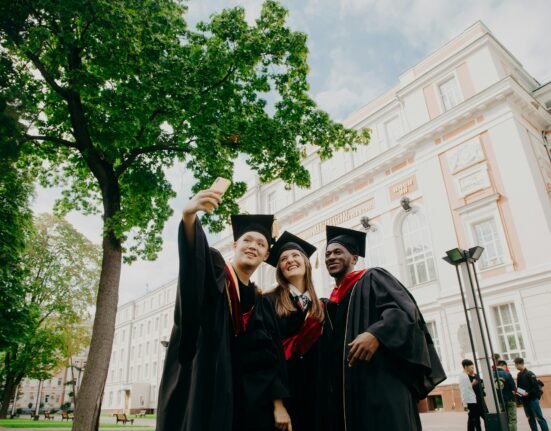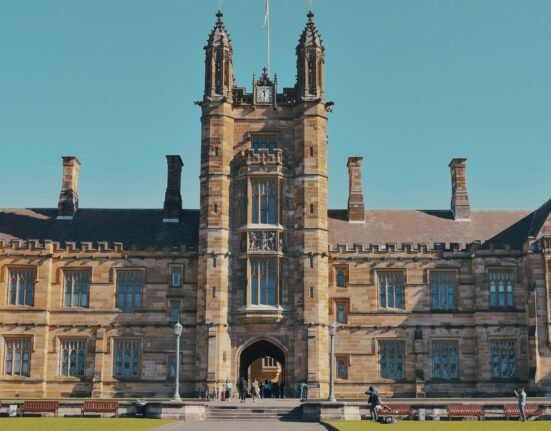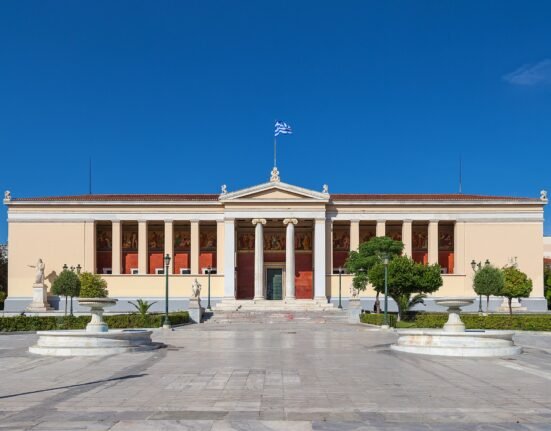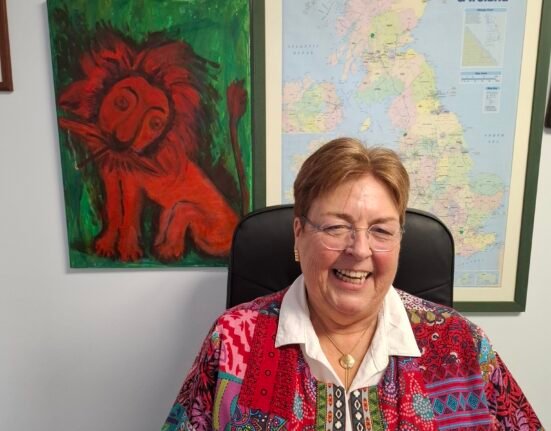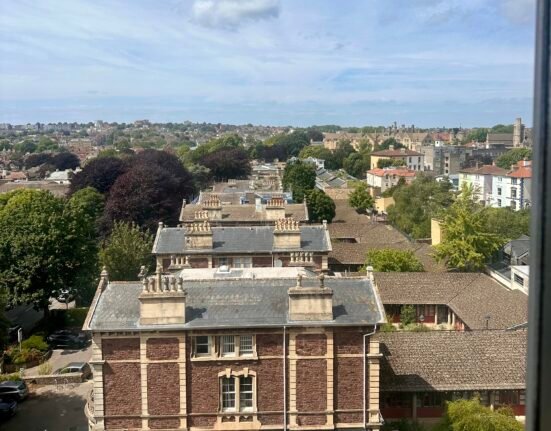Meeting Leni Konialidis was an enlightening experience, showcasing the transformative power of music to elevate lives and bridge cultures. Her vibrant presence is complemented by a captivating immediacy and a delightful sense of humor, making her remarkable accomplishments appear effortless.
Brought up in Switzerland, Leni Konialidis studied political science before embarking on a career as a journalist, specializing in classical and orchestral music while writing in Spanish. Fluent in French, English, and Greek, she readily adapts to various cultural contexts, a skill honed throughout her diverse trajectory. She is married to an Uruguayan of Greek origin and raised her three children amidst Switzerland, France, and Uruguay, all while frequently visiting Greece.
Her professional ties to the music world have brought her close to esteemed musicians, composers, and singers, deepening her understanding of the musical landscape. It was this wealth of experience and her passionate dedication that led to the establishment of the Music Academy of the Anargyrios and Korgialenios School of Spetses (MAAKSS). This prestigious event, held annually, combines educational programs and music performances, taking place for ten days each summer. Over the past four years, MAAKSS has flourished, enriching the cultural fabric of the community.

Music seems to have played a crucial role in your life as you moved across countries. How did it help you and your family adapt to different cultures?
Music gave us a unique form of expression and acted as a lingua franca that bridged gaps with the local communities. For me, personally, it was a way to immerse myself in the culture of each country. When we moved to Uruguay, for instance, I spoke Spanish well, but the cultural nuances were completely different. At a certain age, it becomes challenging to adapt quickly, but engaging with the local music scene as a journalist allowed me to connect deeply.
For my children, music was therapeutic amidst the chaos of adjusting to new environments. Moving from Switzerland to Uruguay was a big change for them, and they had to adapt to a new way of life with less structure. Music became their safe haven. Participating in orchestras and bands made them feel accepted without being judged for their accents, nationality, or background. In the world of music, no one asks, “Where are you from?”—they only ask, “Do you want to play with us?”
How has music helped foster inclusivity and bridge divides in the various international initiatives you’ve been involved in?
In Uruguay, I had the chance to work with a foundation that focused on connecting different regions of the country through music. At the time, there wasn’t much infrastructure linking rural areas with the capital, so we worked to find talented musicians from remote parts of the country and give them a chance to perform in Montevideo. It was amazing to see how music gave them a platform to showcase their talent and reach people who might not have otherwise heard them.
Then, in France, I teamed up with a Uruguayan baritone singer and a Greek association to organize a benefit concert. The event raised funds for children with ichthyosis, a rare skin condition. Music truly became the bridge between the Uruguayan, French, and Greek communities, bringing everyone together for a cause that united us all.

This is also evident in the Music Academy of the Anargyrios and Korgialenios school of Spetses (MAAKS), which not only brings together participants of various nationalities but was also instrumental in founding the Greek-Turkish Youth Orchestra. Music really is such a powerful way to build bridges between cultures.
The Greek-Turkish Youth Orchestra was truly a unique experience. It showed how music can erase differences between young people from conflicting countries. Friendships developed between Greek and Turkish students, and the orchestra brought everyone together in harmony—literally and figuratively!
Given your multicultural background, how important is music education in a person’s upbringing, and how do different nations support its integration?
Music education is very important, and its role in a person’s upbringing can vary by country. In Switzerland, for example, there are many public conservatories that offer free music education, making it accessible to more students. My children, for instance, benefited from solfège and instrument classes and even participated in programs where they performed for elderly people. But these programs often rely on sponsorship and funding from both the public and private sectors.
Countries like Austria and Switzerland have strong traditions of supporting the arts. In Austria, music isn’t just an extra activity; it’s woven into the culture. Kids start learning music early, which helps them develop an ear for good quality music. The Salzburg Festival, for example, gets major backing because music is deeply tied to the country’s identity. Ultimately, the support for music education depends on how much value a country places on it.

Could you share the story of your first encounter with Anargyrios and Korgialenios School of Spetses and how it sparked your vision?
I first came across the Anargyrios and Korgialenios School of Spetses by chance while looking for venues for my son’s wedding. When I saw the five buildings of the school and their vast grounds, I was immediately struck by their grandeur.
At that time, I had already envisioned creating a music academy, and as I stood there, I could almost hear the music filling the air, echoing through these magnificent structures. It felt like the perfect place to bring my vision to life.
As I delved deeper into the history of the school, I learned that it was founded in 1928 and functioned as a boys’ high school until 1983. Today, the foundation that manages the school operates under the Ministry of Education. To support the heavy costs of maintaining such an expansive and impressive venue, the foundation generates revenue by hosting events and congresses.

Your vision for a music academy in Spetses is truly inspiring. How did this idea first come to you?
It all began with my experience at the Verbier Festival, which I’ve followed since its early days as a gathering in a small ski village in Switzerland. What started as a modest event eventually blossomed into one of the world’s most prestigious classical music festivals, partly due to support from a Swiss Bank. The transformation of the village was remarkable—renowned musicians would walk through the streets, and there was this unique sense of community where both locals and visitors felt part of the experience. I remember thinking, “Why can’t we create something like this in Greece?” So, Verbier sparked the idea for the music academy, with Spetses feeling like the perfect place to bring it to life.
What were some of the biggest challenges you faced once you convinced the directors of the Anargyrios and Korgialenios School to support your vision and establish the music academy within the school’s framework?
While establishing the academy was a huge step forward, one of the biggest challenges we’ve faced—and continue to face—is securing the sponsorship that we rely on. We strive to keep enrollment fees as affordable as possible, but it’s simply impossible to cover all our expenses with fees alone. We have significant costs, such as bringing in teachers from abroad, providing piano accompanists for various instruments, and organizing concerts. These expenses quickly add up, and without sponsorship, we wouldn’t be able to make it work.
Each year brings new challenges. For instance, we often ask ourselves, “Should we add a new instrument or activity to our program?” It’s a constant balancing act, but we’re committed to growing and improving while keeping the academy accessible and vibrant.
Were there times when the difficulties you faced made you question your decision to move forward with the academy?
Yes, there were definitely times when the difficulties I faced made me question my decision. The challenges of securing funding, managing logistics, and balancing everything while trying to maintain the academy’s quality were overwhelming at times. One specific moment that helped me carry on was my encounter with the renowned cellist Yo-Yo Ma, the founder of the Silk Road Project, a not-for-profit organization promoting multicultural artistic exchange. When I shared my passion for music with him, in the context of the music academy, as well as my experience with the Greek-Turkish Youth Orchestra, he seemed genuinely interested and supportive. At a time when I was feeling uncertain about my path, his words—“people like you are blessed”—gave me a renewed sense of purpose.

The Summer Music Academy brings together students from 19 countries. How do you foster a sense of community among such a diverse group of young musicians?
The sense of community is established immediately. It’s magical. The participants spend the entire day together. They attend music classes, share meals, and live on the same campus. They all have a common goal—to play music together—and in this environment, the importance of nationality fades away as they become part of a music academy where their shared passion takes precedence.
Can you describe the day-to-day experience of students at the Summer Music Academy? What makes it feel more like a “music camp” than a traditional academic program?
The premises of the school, as I mentioned before, are unique. The experience of living together as a group sets us apart from other academies where students are housed separately. With the sea just across the school, they have the opportunity to swim together, and in the evenings, they walk to the tavernas as a group.
Meals, including breakfast and lunch, are shared in the school’s dining room. Everything is communal. The students perform four concerts, and they feel immense pride in this achievement. They also come together in various ensembles—duets, quartets, quintets, etc. The schedule is demanding, and they must start practicing hard from day one to prepare for these performances.
This year, the Academy introduced its first orchestral concert directed by Bartek Niziol. How did this initiative come about, and what impact do you think it had on the students?
For the second year now, we have an orchestral concert at the school’s open-air amphitheater. This initiative was proposed by Mr. Bartek himself, and we eagerly accepted the challenge. It requires significant preparation ahead of the academy. We must send the music sheets to all participants beforehand for various instruments.
This year, we have added one more instrument to the orchestra—the oboe, which is essential for the orchestral pieces we want to perform. So now, the orchestra includes violin, cello, viola, oboe, French horn, flute, clarinet, and voice. For many of the students, this is their first time performing in an orchestra, and it’s a pivotal experience for them. It helps them decide whether they want to pursue a career as soloists or whether they prefer to play in an orchestra.
You’ve made plans to create smaller chamber music ensembles next year. What opportunities do you envision these ensembles offering to the students, both in terms of musical growth and their overall development?
To support the students’ musical growth, we’ve brought someone on board to oversee the chamber music coordination. This will allow students to connect with each other before the academy begins and start preparing the chamber music pieces they want to perform. Chamber music is crucial for a student’s development because it teaches them to listen, communicate, and collaborate with other musicians. It’s a vital part of their progress, helping them grow both technically and artistically. Working in small ensembles will give them the chance to explore music in a more intimate setting and refine their skills in ways that can’t always be achieved in larger groups or solo performance.

The Academy provides opportunities for young Greek musicians to connect with their international peers. How do you see this benefiting their musical careers and personal growth?
Our violin teacher, Bartek Niziol, helped one of his Greek students secure a scholarship to study in Antwerp. Our clarinet teacher, Fabian Dirr, recommended two of his students for acceptance at Dresden University, where he teaches. Our voice teacher, Marcin Habela, supported one of his Greek students in pursuing vocal studies in Lugano, where he also teaches. Our goal is to open doors for all musicians, connecting them to the wider music world and helping their careers develop and flourish.
Students and teachers alike return year after year to the Academy. What do you think makes this program so special that it fosters such loyalty?
I believe it’s the strong sense of community that draws students back year after year. From the moment they arrive, they feel a deep sense of belonging. The school’s premises are truly unique—calm, serene, and surrounded by the sea and trees. This setting creates a tranquil yet inspiring environment where students can focus on their music and build meaningful connections with one another.
Our teachers also share this loyalty. Many return year after year, bringing their spouses and children along. They request the same rooms and often tell me they feel “at home” here. While it’s true that many prestigious academies around the world offer higher pay, the unique atmosphere we’ve cultivated on Spetses is something money can’t buy.
The charm of having all the school buildings together, right by the sea on a beautiful Greek island, is a major draw. For instance, some classes, like French horn taught by the renowned Greek musician Costas Siskos, are held outdoors in the garden. We also organize special concerts by the sea, creating magical, one-of-a-kind experiences.
The Music Academy seems to be such an integral part of the community on Spetses. Could you tell us more about the other activities you offer beyond the signature Summer Music Academy?
Beyond our main summer program, we also run during the winter, music and dance workshops for small children, including those with disabilities, as well as adolescents. These classes are free of charge, thanks to the generous sponsorship of Community Trust Spetses. They provide a valuable outlet for creativity and self-expression, particularly for adolescents who need engaging activities. In the summer, we open these workshops to include the children of visitors and tourists, creating a vibrant and inclusive environment.
It sounds like the program is growing and evolving. As you look to the future, what is your hope for the Academy in the years to come?
My hope is to solidify the Music Academy of the Anargyrios and Korgialenios school of Spetses (MAAKSS) as a recognized institution that offers accredited diplomas. This would provide our students with credentials that are beneficial as they advance in their musical journeys. I would also like to extend our program’s duration; this would allow us to dive deeper into various musical disciplines and offer additional performance opportunities for our students.
Are there ways for interested individuals or organizations to support its mission and growth?
Absolutely. The Summer Music Academy relies entirely on private and public sponsorship to continue its work and grow its impact. To strengthen this effort, we’ve established the “Friends of the Academy” Association.
Through this initiative, we aim to provide support for talented musicians who may not have the means to afford the enrollment fees. By joining us, supporters can directly contribute to nurturing the next generation of artists.
For anyone interested in making a difference, full details on how to support us, including bank information, are available on our website: https://maakss.com/support-us/
Together, we can ensure that the Academy continues to thrive and inspire.
Has registration for the Summer Music Academy 2025 already begun, and if so, how can interested participants sign up.
Registration has begun. Interested participants can apply through our website: https://maakss.com/admissions/.They must also send us a video recording with their instrument, featuring a piece of their choice.
Your dedication to creating a nurturing environment for the next generation of musicians is truly inspiring. Thank you very much for sharing your journey and insights with Xpat.gr.
Thank you for giving me the opportunity to discuss the Academy and our aspirations. It means a great deal to me and everyone involved at MAAKSS. We are excited about the future and the impact we can make on the musical landscape.



